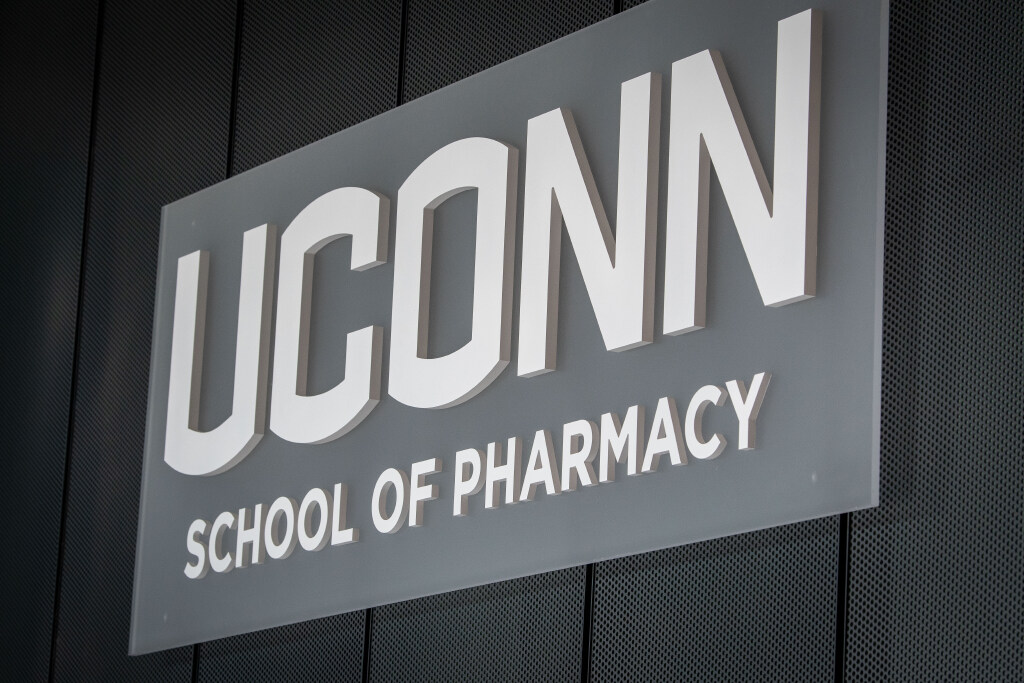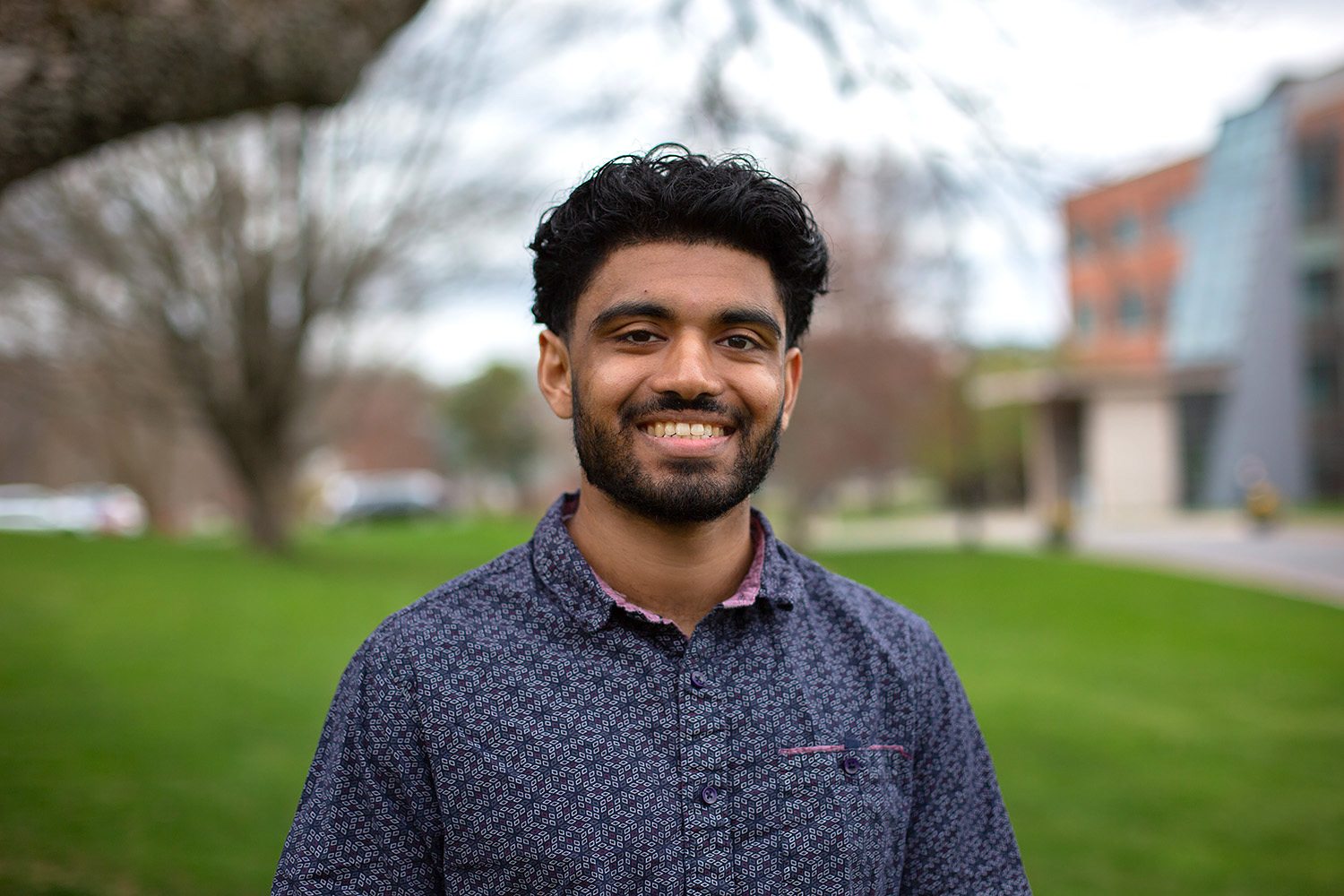More than a dozen UConn students put Hartford under the microscope this semester, assessing the city’s strengths, scrutinizing its shortcomings, and strategizing ways to increase its vibrancy.
Among their recommendations:
• Help the capital city build a richer night life;
• Create an event-planning office to recruit national conventions, concerts and festivals;
• Offer tax incentives for companies willing to open a large grocery store in the city, which is now considered a ‘food desert’; and
• Develop a marketing internship program, employing students from multiple local colleges and universities, to market and promote Hartford businesses.
Although the majority of the students enrolled in UConn’s ‘BUILD Hartford’ course grew up in Connecticut, many in neighboring suburbs, they all said they didn’t know much about the city, and had spent little time in Hartford, until this semester.
Sydney Cunningham, a management major who grew up in Guilford, plans to own her own business one day.
“I wanted to learn more about Hartford because I’ve only been in Guilford my whole life,’’ she said. “I discovered that Hartford has a thriving ecosystem and it made me interested in possibly owning a business here someday.’’
Laura Braddick, a senior who hails from Kennebunk, Maine, said the experience changed her perception.
“I love Hartford now,’’ she said. “But before this class, I really only went to games at the XL Center.’’
As part of their course finale, students offered a host of suggestions to bolster the city. But the goal they all seemed particularly excited about was creating a strong multi-college internship program, tapping into the city’s higher education powerhouses—including UConn, Trinity College, University of Hartford, and Capital Community College–to help market and promote thriving businesses. Many retail shops, restaurants, and gyms are highly successful, but can’t afford a professional marketing team to expand their client base, students said.
Nick English, a native of Manchester who is majoring in sports management and entrepreneurship, said he now feels optimistic about the capabilities and the opportunities in Hartford, and he’s confident that his generation can improve the city for all.
“More than anyone else, students have the power to reshape the city,’’ he said.
‘UConn Students …Want to Change the World for the Better’
For their final ‘BUILD Hartford’ class, students presented their findings to a group of community partners at the School of Business’ Graduate Business Learning Center. Among those in the audience were alumni Michael and Shari Cantor, who funded the class. Michael Cantor runs one of the nation’s largest patent law firms, based in Hartford. Shari Cantor is the mayor of West Hartford, and a member of the UConn Board of Trustees.
Michael Cantor said he hopes that students can help change the city’s trajectory. When he recruits new employees, they are looking to relocate to an energetic and welcoming city, he said.
“There’s been a lot of work done to make that happen, but it can’t just be downtown,’’ he said. “The North End of Hartford is among the poorest areas in the nation, and we need to change that.’’
He said he and his wife are big supporters of UConn, and are also champions of innovation and entrepreneurship. When they learned about ‘BUILD Hartford,’ they thought it was the perfect intersection of their interests.
“Engaging UConn students was a no-brainer because they are really smart, they think out of the box, they have high energy, and they want to change the world for the better,’’ he said.
Shari Cantor said the well-being of Hartford dramatically impacts West Hartford, and many other towns in the state. “This presentation was inspiring,’’ she said. “It is about problem-solving and making our region better. We’ve all contributed to the challenges of Hartford, and we should all be part of the solution.’’
‘We’re the Heart of Connecticut and Everybody Needs to Know That!’’
Offered through the School of Business’ Connecticut Center for Entrepreneurship & Innovation, the “BUILD Hartford’ course was open to undergraduate and graduate students of all majors. This semester the course drew students from the School of Business and the colleges of Engineering and Liberal Arts and Sciences. This is the third time the course has been offered.
Students had the chance to meet with government, business, and civic leaders to investigate the city’s strength and challenges and ways to aid in the development of Hartford. Instructor Matt Connell and program coordinator Michaela Hartl said the students were able to take a complex issue and divide it into achievable tasks.
In addition to its reputation as the insurance capital of the world (some 150 insurance companies are headquartered in Greater Hartford), the city is located in a desirable location in the Northeast, boasts a highly educated population, offers great recreation, including the Connecticut River, and offers strong support for startups and innovators. They also praised Bushnell Park, Parkville Market, the city’s minor-league sports teams, outstanding universities, great historical and entertainment venues, and diverse cultures and food, they said.
The city’s challenges include transportation and parking problems, crime, remote work that has decreased foot traffic, lack of corporate and collegiate engagement, food insecurity/lack of grocery store, challenges with large event planning and coordination, and challenges around small businesses’ ability to promote themselves, the students said.
Reiner Reichenberger, a business management major who grew up in West Hartford, said he thinks the city should use tax and business incentives to attract a large grocery store, so that city residents don’t need a car. Currently, Hartford residents have to leave the city to shop at a large grocery store.
Kortney St. Preux, a Stratford native and exploratory major, said the city should offer self-guided walking tours, popup shops and customer loyalty incentives to boost retail sales. St. Preux wants to open a non-profit therapy clinic. “Through this course I got good business advice about finances, employees, communication and resilience,’’ she said.
Students suggested creating a local event-planning office, in partnership with city officials and small business owners, to simplify the logistics, permits and venue selection for events. This would make it easier to attract conventions and other larger events to the city.
Revitalizing Hartford nightlife was a priority for Raiyan Ahmed, a biomedical engineering student from Bethany. When he spoke with non-residents and asked what they thought of the city, most of the comments were negative.
“It all came down to one comment…Hartford is a bad place to live,’’ he said. He would like to see more concerts, festivals and art exhibits offered in the city.
“I think nightlife is extremely important for a city like Hartford. If you go to Times Square on Monday night, there are people there, there is energy. Hartford needs events to attract more people,’’ Ahmed said. “A well-implemented nightlife will welcome visitors and is part of a dynamic social scene.’’
Nisha Joshee Hardnett, a graduate business student who works at Trinity College, said the course offered a unique opportunity to talk to small business owners and take a deep dive into what Hartford could offer.
“I love being part of the solution. That’s what drew me to this course,’’ she said. “This is such a diverse community in Hartford and that’s not being amplified. We’re the heart of Connecticut and everybody needs to know that!’’
“I’m particularly interested in bridging the gap between the educational institutions in Hartford. I want to see how they can work together, using the energy of the students, to make it the best it can be,’’ Hardnett said.
Cunningham agreed. “After speaking with the small business, I felt the most important element they needed was marketing. They said it was too expensive for them to afford it. I’d like to see colleges in Hartford provide interns to help with marketing, especially to dispel the stereotype that Hartford is a dead city,’’ she said. “It is important to spread the word that many businesses here are thriving.’’
‘They See Hartford Differently Now’
Jennifer Mathieu, executive director of CCEI, said the course offers both strategies for Hartford and personal growth for students.
“This course pushes students to step out of their comfort zone, and go out into the community to talk with various members of the entrepreneurial ecosystem in Hartford,’’ Mathieu said.
“Each semester the projects and outcomes our students have produced are incredibly creative, and this semester is no different. I am proud to see what the students were was able learn and accomplish in a very short period of time,’’ she said.
The students will share their findings with community leaders and hope to leave a blueprint of their ideas for the next cohort of students who enroll in the course in the spring to build upon.
Communications professor Rory McGloin, who will teach the course next semester, said he is excited about the ripple effect the course is creating.
“We heard the perspective of students who experienced Hartford first-hand,’’ he said. “We want them to have their next birthday party here, bring their family downtown, and share with others that they see Hartford differently now. I believe the course was already a success, because they were here!’’



